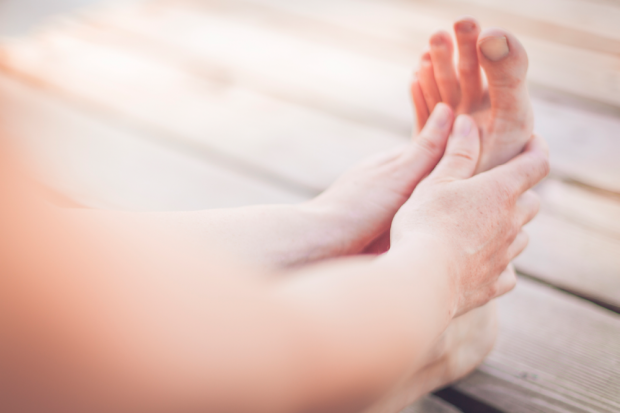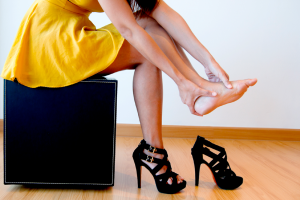Sleepy Limbzzzzz Why Does Your Foot Fall Asleep? The Truth Behind Tingling In The Feet
Contrary to popular belief, nerves — not poor circulation — are why our feet go numb and get the tingling sensation most people call a foot “falling asleep.”
We’ve all had the uncomfortable experience: Following an extended period of having your foot or leg bent in an awkward position, you try to move or stand up and realize that you feel a numbness or tingling in your feet, almost as if you’re on pins and needles. But what exactly is behind the numbness and tingling, which most people describe as the foot falling asleep?
Why Your Foot Falls Asleep
Many people assume the strange sensation described as a foot falling asleep is due to restricted blood flow, but poor circulation is rarely to blame for a limb that has fallen asleep. The heavy, dull, weird feeling — called paresthesia in the medical world — is actually more connected to your nerves.
The nerves in your body act like tiny phone wires, carrying electrochemical messages back and forth between your body and your brain. But when you compress the nerves for an extended period of time (which can happen when you sit on your foot or cross your legs for too long, for example), communication between the body and the brain can be temporarily interrupted. For a few moments, your crunched body part doesn’t feel anything, and as the nerves return to normal and begin communicating with the brain again, the affected body part can sometimes feel tingly, numb, heavy, and strange.
In same cases, compressed arteries are to blame for paresthesia. When an artery is pinched, it is unable to supply your tissues and nerve cells with the oxygen and glucose-rich blood they need. But as mentioned above, this is not usually the case and nerve communication is generally to blame.
Should You Worry If Your Feet Fall Asleep?
The “falling asleep” feeling of parasthesia is rarely painful and, as sites like Healthline, Medlineplus and MayoClinic point out, the duration is usually only a few seconds. In fact, paresthesia is a completely normal and harmless sensation that everyone experiences from time to time. Though it can be an annoying feeling, it is actually quite beneficial. The discomfort prompts you to adjust your position, which is necessary to avoid permanent damage that may occur in the limbs if blood flow is restricted and nerves are compressed for several hours.
However, chronic paresthesia could be caused by medical conditions like diabetes, hyperventilation syndrome, neuron function problems, Traumatic Brain Injury (TBI), poor circulation, tumors, panic attacks and prior strokes. Therefore, it is suggested that you visit a health care provider if you experience one or both of your feet falling asleep on a regular basis.
Notice concerning medical entries:
Articles having medical content shall serve exclusively for the purpose of general information. Such articles are not suitable for any (self-) diagnosis and treatment of individual illnesses and medical indications. In particular, they cannot substitute for the examination, advice, or treatment by a licensed physician or pharmacist. No replies to any individual questions shall be effected through the articles.






